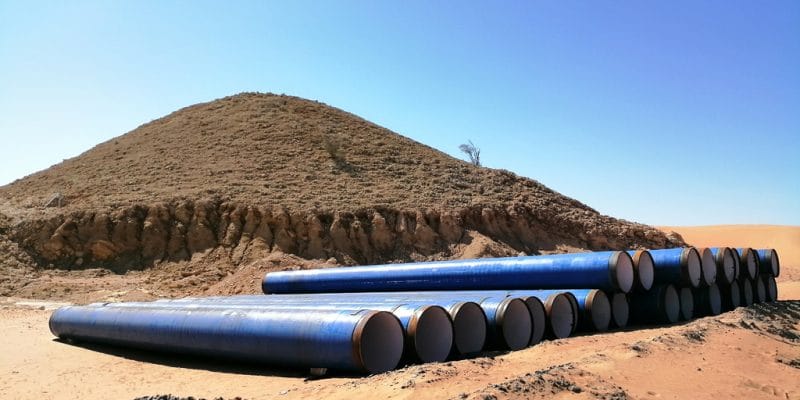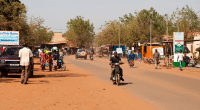The Namibian government is launching an emergency programme in the context of water stress. The Namibia Water Sector Support Programme (NWSSP) aims to improve the quality, safety and sustainability of water supply and sanitation services for at least one million people.
In a report published on July 13th, 2021, the United Nations Educational, Scientific and Cultural Organisation (UNESCO) recall the consequences of the drought in Namibia. These include the death of livestock, reduced agricultural production, food insecurity and above all shortages of drinking water. The international organisation says that one of the most intense episodes was between 2013 and 2016, affecting around 450 000 people in the country. The Namibia Water Sector Support Programme (NWSSP) aims to mitigate the effects of drought. This phenomenon dries up rivers in the southern African country.
Read Also –
The NWSSP includes expanding the capacity of the Rundu water supply system (from 336.2 m3 to 677.9 m3 per hour), the Oshakati water treatment plant (40,556 m3 per day), the Olushandja wastewater treatment plant (4,000 m3 per day) and the Katima Mulilo water treatment plant, which has a daily capacity of 3,560 m3. The Namibian government is also planning to build new water intakes, 50 lifts, as well as the laying of 200 km of distribution pipes with collectors, water points, etc.
Support from AfDB and KFW
According to Namibia’s Minister of Agriculture, Calle Schlettwein, the NWSSP will directly benefit about one million Namibians and 250 000 people indirectly, in the regions of Ohangwena, West and East Kavango, Oshikoto, Zambezi, Khomas, Oshana, Omaheke and Omusati, as well as vulnerable areas in the regions of Kunene and ǁKaras.
Read Also – Urban sanitation, a major challenge for sustainable cities in Africa
The objective of the NWSSP is to improve the quality, safety and sustainability of water supply and sanitation services. In June 2021, the Namibian government loan agreements with the African Development Bank (AfDB) Group and its subsidiary, the African Development Fund (ADF). The two development partners are providing N$1.8 billion (over US$120 million) and N$51.6 million (about US$3.45 million) respectively for the implementation of the NWSSP. According to Minister Calle Schlettwein, Kreditanstalt für Wiederaufbau (KfW), the German development agency, has already provided about N$870 million (over US$58 million), while the Namibian government will contribute N$2.3 billion (about US$153.5 million) to the funding of the Namibia Water Sector Support Programme. It is expected to be implemented until December 2025.
Ines Magoum







